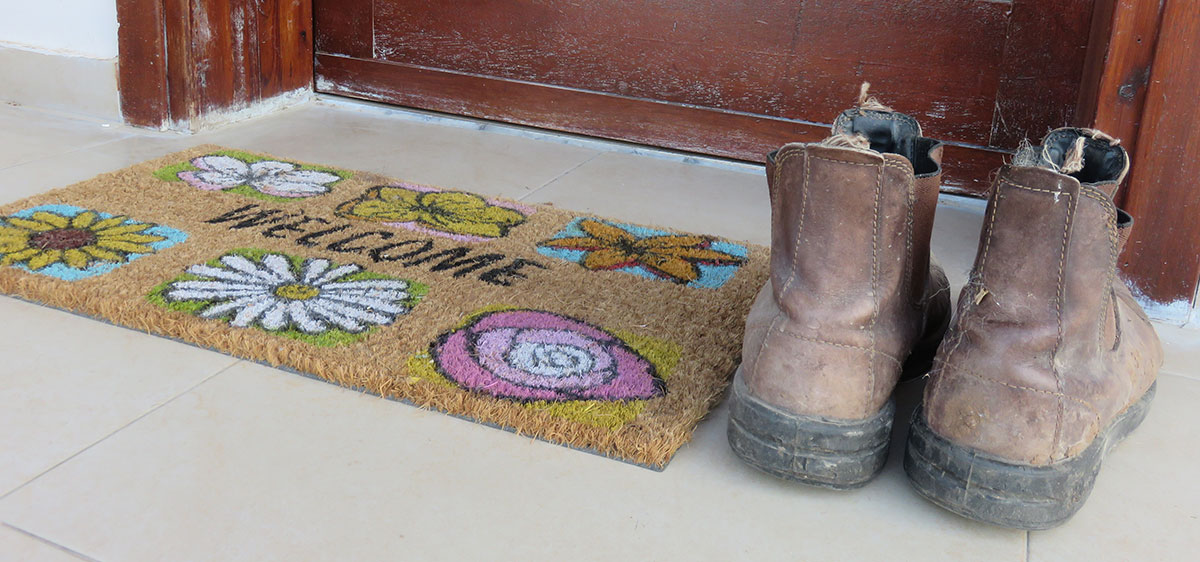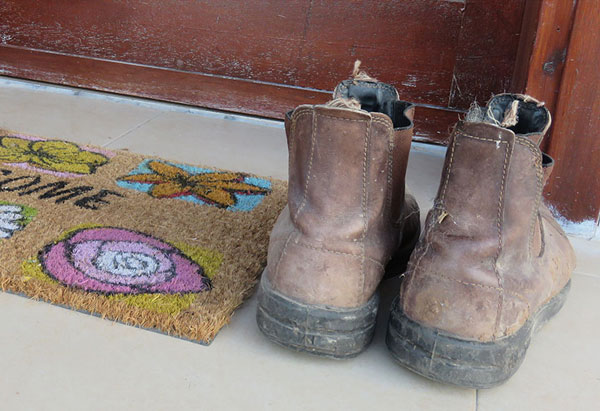[vc_row][vc_column][vc_column_text]

[/vc_column_text][/vc_column][/vc_row][vc_row el_class=”hero-header-text”][vc_column][vc_column_text]
Home from the Hospital
What Swedish Covenant Hospital is doing to provide healing for its homeless patients
by Jenna Pirrie | August 3, 2018
[/vc_column_text][/vc_column][/vc_row][vc_row][vc_column][vc_column_text]
Where do you go when you’re sick and homeless? Often the ER is the best option for chronically homeless individuals with medical issues. Across the country emergency department staff find themselves greeting the same faces again and again. Without the safety and stability of permanent housing, homeless people are vulnerable to illnesses, accidents, and violent crime necessitating medical attention. For many, the ER is their only source of health care. And sometimes it is just a warm and safe place to sleep for the night.
[/vc_column_text][vc_column_text]
It’s a costly situation for hospitals. In Chicago the medical costs for homeless patients can be seventy times higher than for housed patients, and hospitals are looking for a practical answer.
In 2016 the University of Illinois Hospital partnered with the Center for Housing and Health to launch a solution—the Better Health Through Housing initiative. Recognizing that the costs of housing an individual amount to less than the healthcare costs of leaving them vulnerable on the streets, the program invests in permanent housing and intensive case management for chronically homeless individuals to bring them to health and reduce the number of ER visits.
In July 2017, Swedish Covenant Hospital (SCH) became the second hospital in Chicago to invest in Better Health Through Housing. Marcia Jimenez, governmental relations manager at SCH and member of Winnetka Covenant Church in Wilmette, Illinois, learned about the program, and with help from Stephen Brown, director of preventive emergency medicine at the University of Illinois, Jimenez worked with the Center for Housing and Health to draft a similar program.
Since launching the program last summer, SCH has provided permanent housing to seven chronically homeless individuals, with a few more people in the process and a goal of housing ten by the end of the program’s first year.

Kimberly Leslie, clinical director of the Emergency Department, said that the mission of Swedish Covenant Hospital is to bring these people to health—something that couldn’t happen when patients had to be discharged back to the streets after every visit. “We can see you an endless number of times in the emergency department,” said Leslie, “but we are never going to bring you to health if you are homeless.”
One of the program’s few criteria is that candidates must be chronically homeless, as opposed to having been on the streets for just a few weeks. Leslie and the ER staff work to identify homeless patients who are frequent visitors. While some patients may divulge homelessness during care, staff often aren’t aware that a patient is homeless until a patient is being discharged and puts a hospital or church as their address.
Not every eligible patient is interested in the program. But for those who are, they are asked for consent to set up a meeting or to be contacted further. Leslie provides the names of interested candidates to Ron Johnson at Heartland Alliance, an anti-poverty organization based in Chicago, whom Leslie refers to as their man on the street. Johnson sets up a time and a place with each person to handle screenings and have a conversation about their needs. He will take to the streets when necessary to find candidates who are interested.
The Center for Housing and Health coordinates a case manager for each participant in the program. The case managers arrange immediate bridge housing for participants, start the apartment search, and journey with them on the road to permanent housing and better health. The case managers continue to check in and help with scheduling doctors and behavioral health physicians, navigating help for substance abuse, dealing with legal issues, getting documents, registering for disability, and finding jobs.
Leslie says that more hospitals are now interested in the program. In meetings with personnel from other area hospitals, they realize they all have the same problem—and sometimes even the same patients. The question going around, Leslie says, is, “How can we get together as a community, as a city, and take care of housing for heath for these patients?” These medical professionals are looking for potential solutions through pooling resources.
The best way to help homeless
patients’ health is to give them housing
The Better Health Through Housing initiative allows area hospitals to care not just for individuals but for their community and its residents. Getting frequent patients on a path to stability and wellness allows emergency departments to allocate time and resources to more patients. Stephen Brown calculates that if every Chicago hospital took care of housing ten individuals, the number of chronically homeless in the city could be reduced by a third.
In a conversation with Brown and ABC7, Peter Toepfer, executive director of the Center for Housing and Health, said, “We’re providing people with the dignity of a home, they’re able to be healthy, and we’re saving taxpayers money.”
Currently, the Center for Housing and Health pays for the housing for SCH participants, and additional support services are funded through a Swedish Covenant Hospital Foundation Board grant. Other organizations are expressing interest in helping to fund the program. As Swedish wraps up their first year, Leslie expects the data to show that the program benefits the hospital as well as the lives of the people they have helped move to health.
Leslie says that before they entered the program, participants collectively had dozens of ER visits in the last year. Now only two have returned to the ER for necessary visits, and the others haven’t needed emergency services at all. One has gained employment.
Leslie and her staff are still learning the mindset of homeless people about housing, she says. Some who are chronically homeless have found their own sense of family on the streets and are not interested in leaving that community to live in an apartment alone. Staff at SCH recognize that it can be presumptuous to assume they know what homeless individuals need—but they want to at least offer the opportunity for health.
“Emergency department nurses are doers, we like fixing things,” says Leslie. “There’s a lot of angst when you put in all this effort and find out the patient is homeless—and you can’t help that.” She says that the energy among staff for the Better Health Through Housing initiative has been surprising. “The best way to help homeless patients’ health is to give them housing,” she says.
Finally the staff have a way to offer that help.
[/vc_column_text][/vc_column][/vc_row][vc_row el_class=”cc-author-bio”][vc_column width=”1/4″][vc_column_text] [/vc_column_text][/vc_column][vc_column width=”3/4″][vc_column_text]
[/vc_column_text][/vc_column][vc_column width=”3/4″][vc_column_text]
About the Author
[/vc_column_text][vc_separator color=”black” style=”dotted”][vc_column_text]
Jenna Pirrie is the communications coordinator for Covenant Communications, where she enjoys the fact that most days contain a little bit of everything. She read 100 books last year and is also a freelance graphic designer.
[/vc_column_text][/vc_column][/vc_row]














